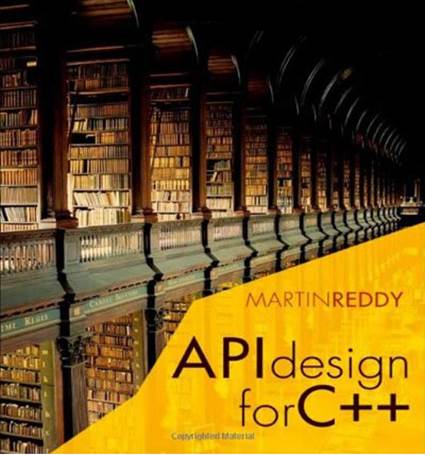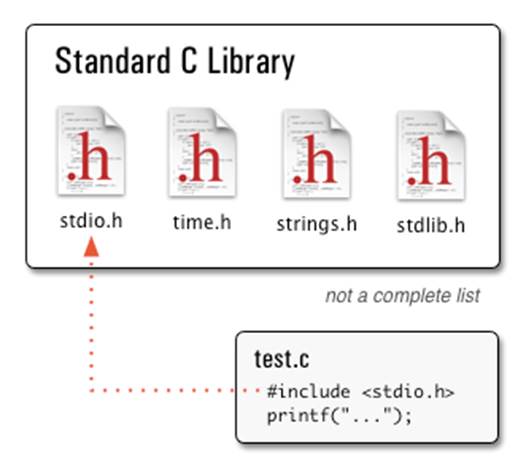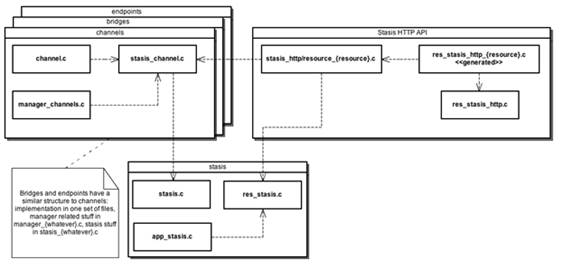The C library is perhaps the most
widely reused library in the world. However, it has numerous flaws and
inconsistencies, from which we can learn.
Design is hard, and API design is harder.
This is because applications and systems are designed to be used, while in the
case of APIs, we design them not just to be used but also reused. Applications
are designed for end customers to use; however, with the APIs in libraries,
platforms and frameworks, the end user is another programmer who wants to get
the work done via the API. There are more things to consider in API design than
with application design. For example, compatibility issues (such as backward compatibility)
are an additional concern for an API designer. In frameworks and libraries,
fixing a bug is difficult when compared to fixing the same bug in a stand-alone
application. For example, if the bug fix involves a change to the public
interface exposed by the API, then the existing applications written based on
that interface will fail. Hence, the evolution of an API is harder than
evolving applications.

API
design: learning from mistakes in the C library
C is used in a wide range of devices, ranging
from microwave ovens to air-planes. With the popularity of the C language and
its widespread use, APIs in the C library have been used by millions of
programmers worldwide over the last four decades. The C library has had a huge
impact on the design of libraries in languages that arrived later. For example,
the ‘format string’ approach is not type-safe, but for formatted output, it is
a very convenient approach. The C++ language provides a type-safe alternative
to formatted output, but that is not as convenient as the C ‘format style’
approach to use. The Java language’s println approach is type-safe, but is not
convenient. Hence, Java introduced printf with the ‘format string’ approach in
its library. Similarly, C# has format strings, and only its format specifies is
slightly different; instead of the % symbol, it uses { } symbols. This is just
one example of the influence of C library design on languages that came up
later.
Given the influence and widespread use it
enjoyed, it is surprising to find that the C library has numerous flaws and
mistakes! So, it would be interesting for us to understand these mistakes and
learn from them, so that we can avoid them in future.

Subtle differences in similar-looking
functions
In API design, it’s important to keep
similar things to be similar. All of us are familiar with the puts () function,
which writes the string passed as an argument to the standard output, followed
by a newline character. Now, if you compare puts () with the similar looking
fputs () function, you will find a slight difference in semantics: fputs ()
writes the string passed as an argument to the given stream without the newline
character. Now, this difference is subtle, and as programmers it’s difficult
for us to remember it every time we use these functions.

In
API design, it’s important to keep similar things to be similar
Inconsistent argument order in functions
Similar functions must have a similar
argument type/order and return type. Consider the following two functions:
void
bcopy(const void *src, void *dst, size_t n);
void
*memcpy(void *dst, const void *src, size_t n);
Note the order of the first two arguments
for these. As you can see, the order is interchanged. As a programmer, you
should remember which the source string is and which the destination string is,
because if you get confused, you may introduce a subtle bug by copying the
string from the destination to the source! That is why consistency is an
important factor in API design, and many C library functions are inconsistent.
Unsafe functions
A considerable number of C functions are
unsafe. For example, the functions are often not type-safe, or they are not
safe to call. For example, functions like scanf () and gets() read the string
to the input buffer without checking the size. If the string read is larger
than the buffer size, it results in a buffer overflow. For this reason, these C
functions are infamous for buffer overflow attacks, which lead to security
exploits.
Stateful functions
Library functions are supposed to not remember
state. Functions such as strtok are stateful – they remember the state based on
the passed argument string, and the next invocation of the function will result
in a different value based on the earlier call. The state remembered by a
function could be a static value or a global value. Stateful functions are bad,
because the behavior of the functions will change depending on whether you have
called it before.
Non-reentrant functions
A function is 'reentrant' if it can be
safely called again (i.e., it can safely 'reenter' the function) even if it is
already part of a call. For example, assume that a function is interrupted by a
signal. Now, if the function is entered again from some other control flow, it
should be safe to execute that function; now, after this reentered execution
completes, the original invocation should be able to complete execution safely.
A function is 'non-reentrant' if it cannot
be safely called again if it is already part of a call. Many of the library
functions in the original C library are non-reentrant. In general, stateful
functions (which we discussed just now) are non-reentrant. So, the standards
have defined equivalent C library functions that are reentrant. For example,
strtok_r is a thread-safe alternative to strtok. Note the ‘_r’ suffix – it
stands for ‘reentrant’. A few examples of reentrant variants of C functions
are: rand_r, asctime_r, ctime_r, and localtime_r.
Functions that do ‘too many things’
An example of a function that does too many
things at once is realloc (). Depending on the argument values passed, it can
work like malloc () and allocate memory, can work like free () and release
memory, or reallocate the memory. The method could have perhaps been defined
only to do one thing: reallocate memory. To elaborate, here is the declaration
of realloc:
Void
*realloc(void *ptr, size_t size);
Now, depending on the argument values, the
behavior of realloc changes. If size < original block, it shrinks the block;
if size > original block, it expands the block. Now, if ptr is NULL, it is
equivalent to calling malloc(size); if size is equal to zero and ptr is not
NULL, it is equivalent to calling free(ptr). If the ptr got moved, then it is
equivalent to free (ptr). Yes, from this description it is clear that the
designer of realloc has made it smart - based on the argument values, the
behavior of the function changes. However, preferable to ‘smart programming’ is
‘simple and straightforward programming’ in API design, and an important aspect
of keeping functions simple is to let each do one thing and do it well.
I have listed some of the mistakes or
problems in the C library. The list is not exhaustive but is just meant to give
you an idea of the kind of API design problems in the C library. Good designers
not only learn from their own mistakes, but also from others’ mistakes and from
the past. I hope this list has motivated you to improve and become a better
designer.